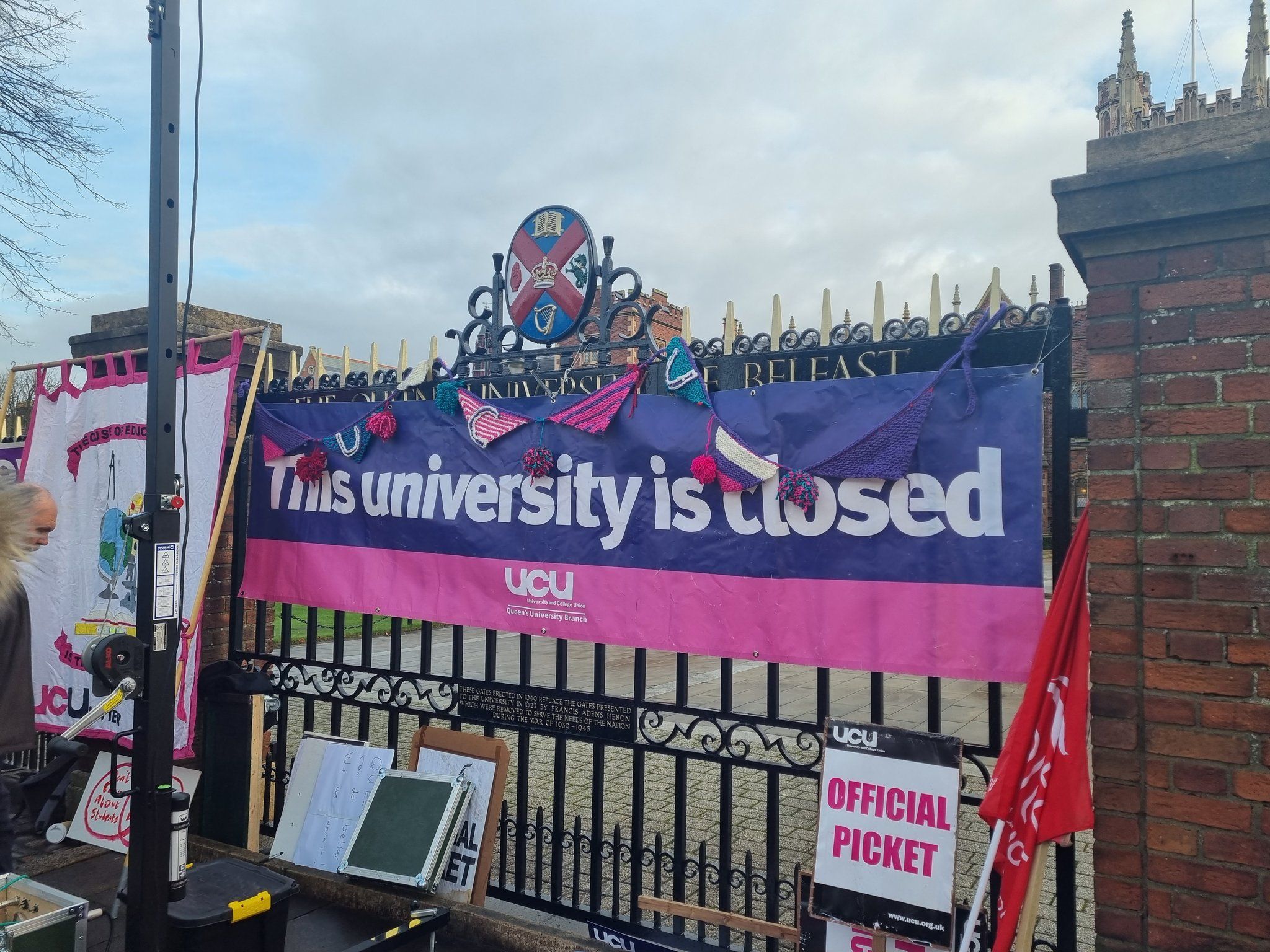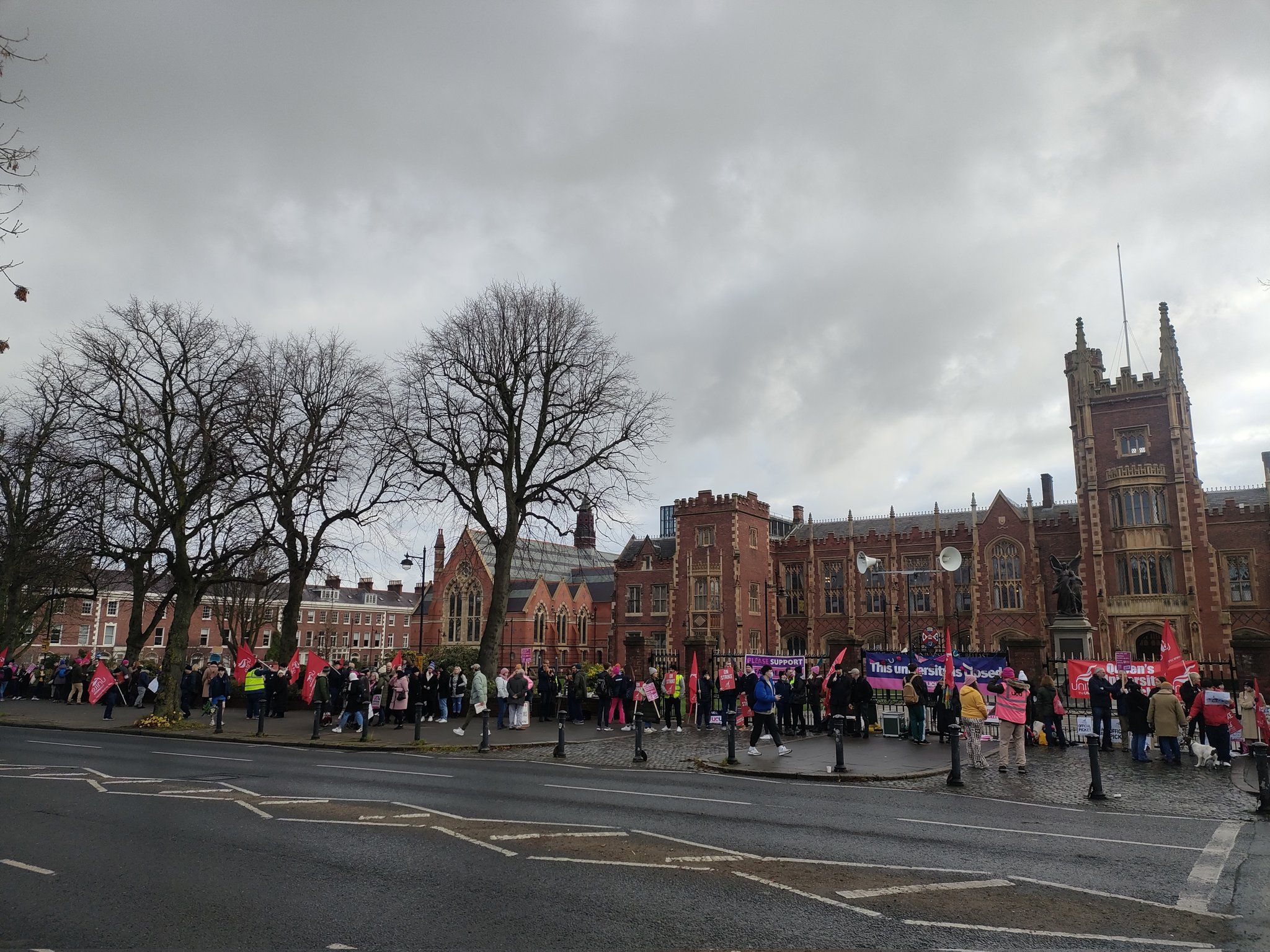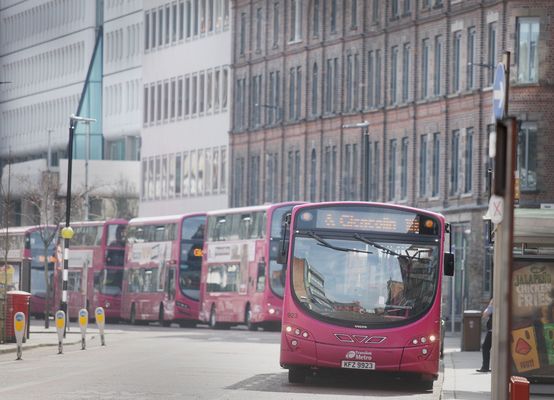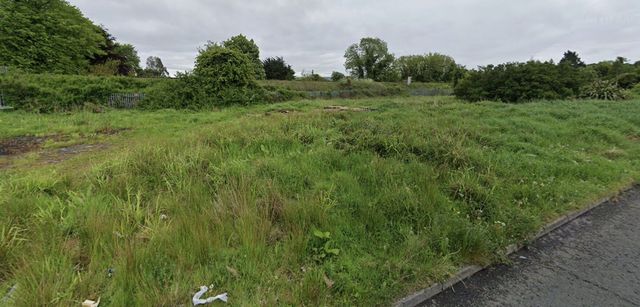STAFF at Queen’s and Ulster University have taken part in their third day of planned strike action, the culmination of a long-running row over pay.
The strikes, which took place on 24, 25 and 30 November, involved staff from Queen's and Ulster universities as well as universities across the North, England, Scotland and Wales.
Other higher learning institutions across the North who are also members of UCU took part in the three days of strikes, including the Open University. Staff in 70 universities across the United Kingdom have voted to strike.
This year the Universities and Colleges Employers' Association (UCEA), which represents university employers across the UK, proposed a 3 per cent pay increase for staff this academic year, with 9 per cent for those on the lowest pay grades. But with the increased rate of inflation sitting at 11 per cent, unions are arguing that this actually represents a pay cut amidst the current cost of living crisis.
CLOSED: QUB workers on strike on 30 November
Professor Sean O’Connell, President of UCU, speaking in October, said: “Our members work tirelessly to support student learning and to produce world class research.
“Since 2009, our members have seen real terms pay cuts of over 25 per cent and a recent average pension cut of 35 per cent. Gender, race and disability pay gaps also affect staff.
“Many UCU members were already struggling financially before the current cost of living crisis, including some who are also postgraduate students.
“Staff working conditions are student learning conditions. Workloads are dangerously high and staff have less time to support individual students. Consistent precarious employment leaves many staff constantly applying for jobs rather than supporting students or producing research.
“Unless employers, including Queen’s Vice Chancellor Professor Ian Greer and the other 148 Vice Chancellors in the UK, choose to negotiate, UCU at QUB members will be left with no other option but to take part in UK-wide industrial action on 24, 25 and 30 November.
“Currently, each of the Vice Chancellors dodge personal responsibility for pay and pensions, claiming to be impotent due to the collective nature of national pay and pensions bargaining.
“The argument of workers at QUB is that that as these VCs are collectively paid more than £44m per annum they should demonstrate the leadership skills that such vast financial resources suggest that they possess. These VCs should come to the table with resolutions to our disputes and not continue to wash their hands of the personal responsibility that comes with the vast sums that they are paid each year.”
Emma Murphy QUBSU WITH A MEESAGE OF #solidarity: our leaning conditions are your working conditions. Students are not here to create profit for universities. #ucuRISING pic.twitter.com/5HimBWLdcq
— UCU at Queen's (@ucuatqub) November 30, 2022
Dr Rebecca Bamford, a senior lecturer at Queen’s University, said the third of the planned three day strikes had been well attended, and there was hope of a breakthrough as UCU negotiators were meeting with UCEA officials in London.
Dr Bamford said: “We had a hugely well attended picket today that culminated in a rally jointly with Unite at Queen’s and with Ulster UCU, with amazing solidarity from Queen’s Students' Union and NUS USI as well. UCU national negotiators are meeting with UCEA today in London.”
People Before Profit MLA Gerry Carroll attended the strike in support of UCU workers. He said: “Universities are destroying higher education by prioritising profits over education.
“Workers’ pay has been cut by 25 per cent since 2009 and their pensions have been destroyed. Many university workers are on precarious contracts despite the important work they do.
“Ulster University and Queen’s University have recently spent millions on shiny new buildings, but are treating their staff with contempt. They have the money and the power to give workers what they deserve.”







